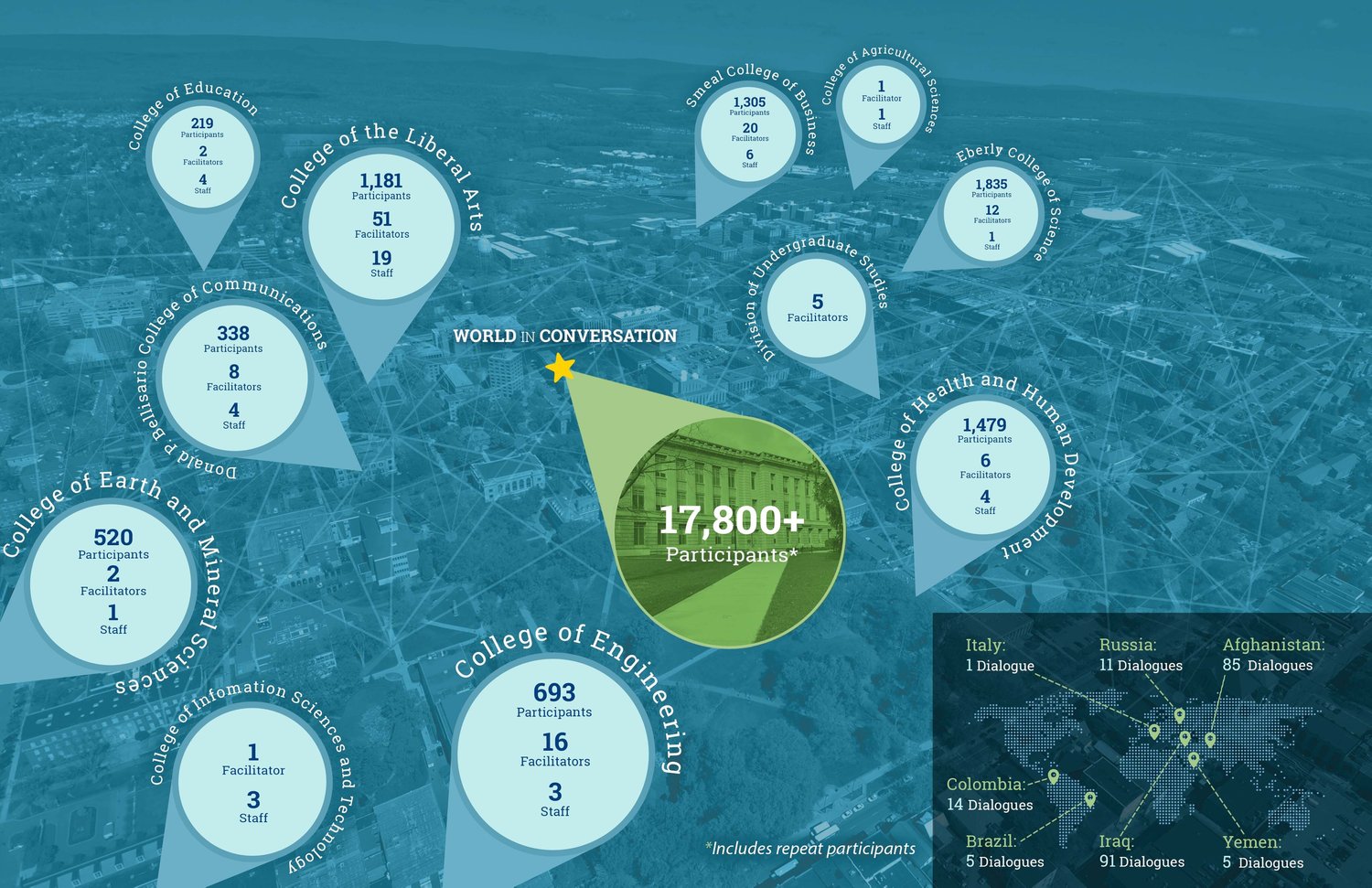Imagine empathy repair understanding goodwill collaboration compassion curiosity between opponents.
Facilitators make the impossible possible.
On Campus
Community
Around the Globe
On Campus
Our most well-known programming consists of the student-facilitated dialogues we offer on the University Park campus for Penn State students in all of our colleges. These dialogues provide opportunities for undergraduates to examine controversial social issues together–and also comprise the clinical practice for facilitators-in-training.
Penn State's Day of Dialogue
Following President Barron’s vision to use dialogue as a tool for building community on the University Park campus, World in Conversation hosted two day-long opportunities where students, staff, faculty and administrators came together in small groups to address current issues.
Israel–Palestine Dialogues
During Dr. Mulvey’s Social Conflict Class (SOC 425), for seven semesters, students participated in weekly online dialogues with citizens either in Israel or Palestine for the purpose of examining the conflict in that region from the lens of the people living in it–and, through that process, learning about the nature of conflict itself.
West–East Dialogues
With the increasing presence of students from countries in Asia on campus and very little interaction between domestic students and them, facilitated dialogues were initiated to bring these groups into conversation to address current issues together.

Race Relations Project
For nearly ten years, we hosted dialogues exclusively focused on US race issues. We started in 2002 by asking the question, “What is going on in this generation with respect to race?” and evolved over many years into many initiatives and into the center itself.
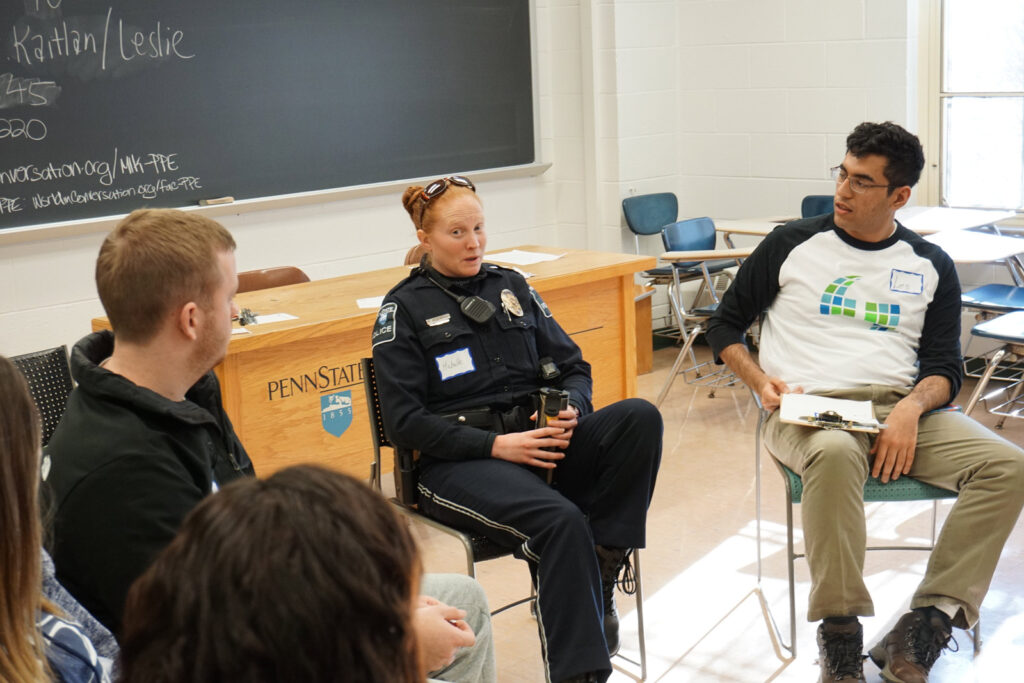
Police–Student Dialogues
We hosted a conversation with local police and students to discuss the respective concerns of both groups regarding the use of alcohol and other recreational drugs.
West–Middle East Dialogues
During a time when the United States still had troops on the ground in the Middle East, we developed a dialogue initiative between international students from a variety of countries in the Middle East and students from a variety of backgrounds in the U.S. to address current issues related to these differences.
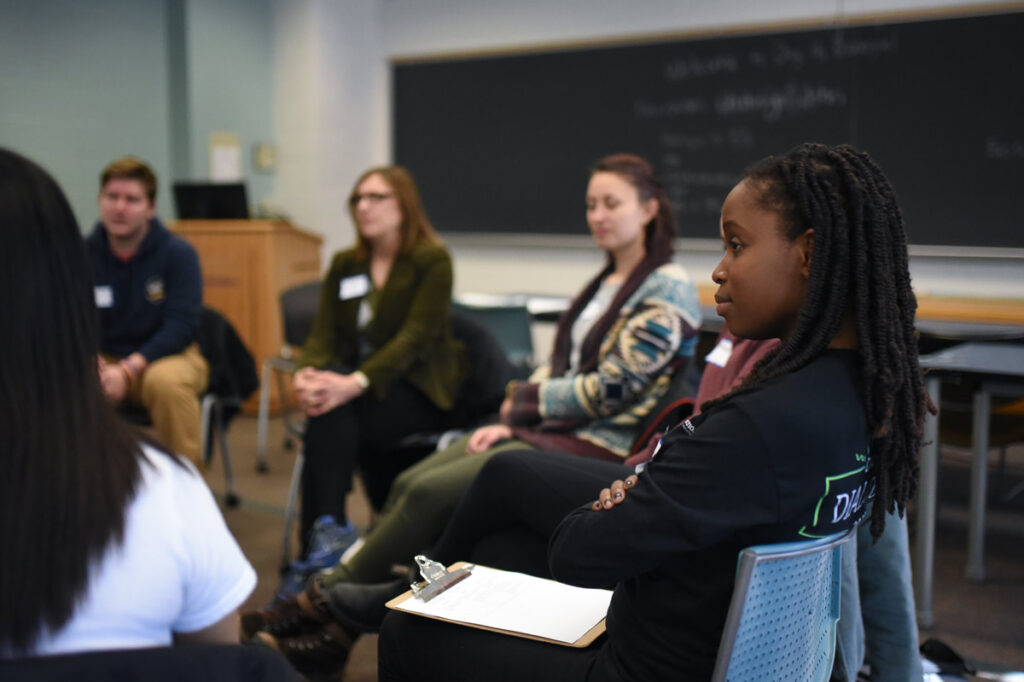
Post–Major–Event Dialogues (9/11, PSU Scandal, COVID, 2020 elections)
Following events that destabilize the community, we have re-focused our regular programming to create opportunities to discuss these critical moments in real time.
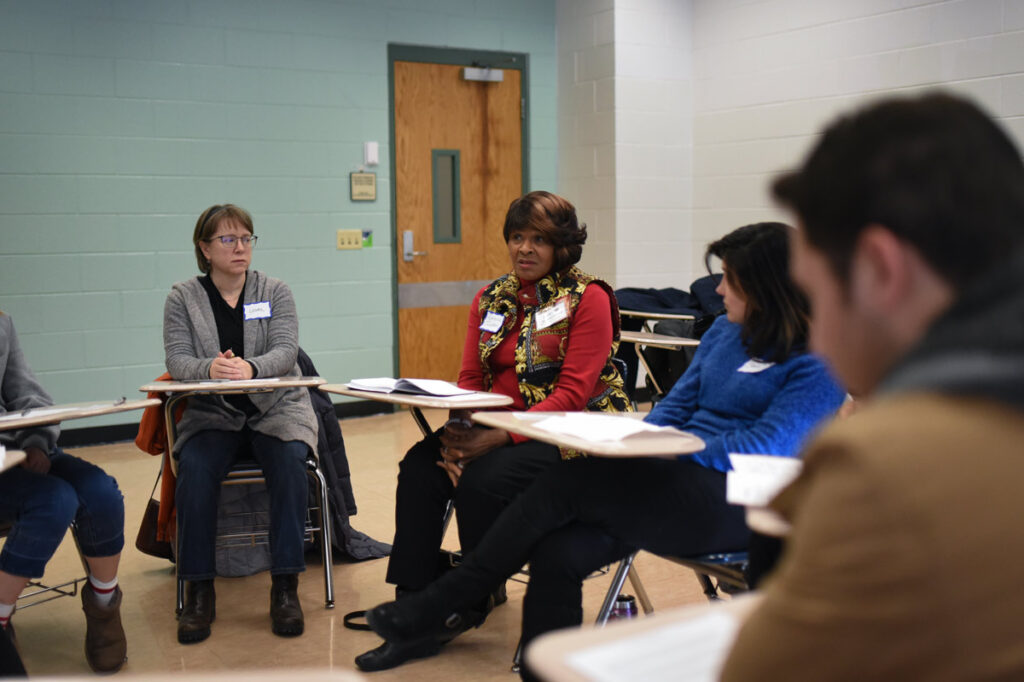
Gender Dialogues
In response to a request from an Associate Dean in the College of Science, we created an initiative to address sexual assault and gender-related concerns among students.
Climate Dialogues
Following the destruction of Hurricane Sandy, we designed and offered a dialogue initiative for students across campus to discuss climate change-related issues.
Military Veterans and non-Veteran Dialogues
In collaboration with Penn State’s Office of Veterans Affairs and Services, we hosted dialogues about contemporary issues between veteran and non-veteran Penn State students.
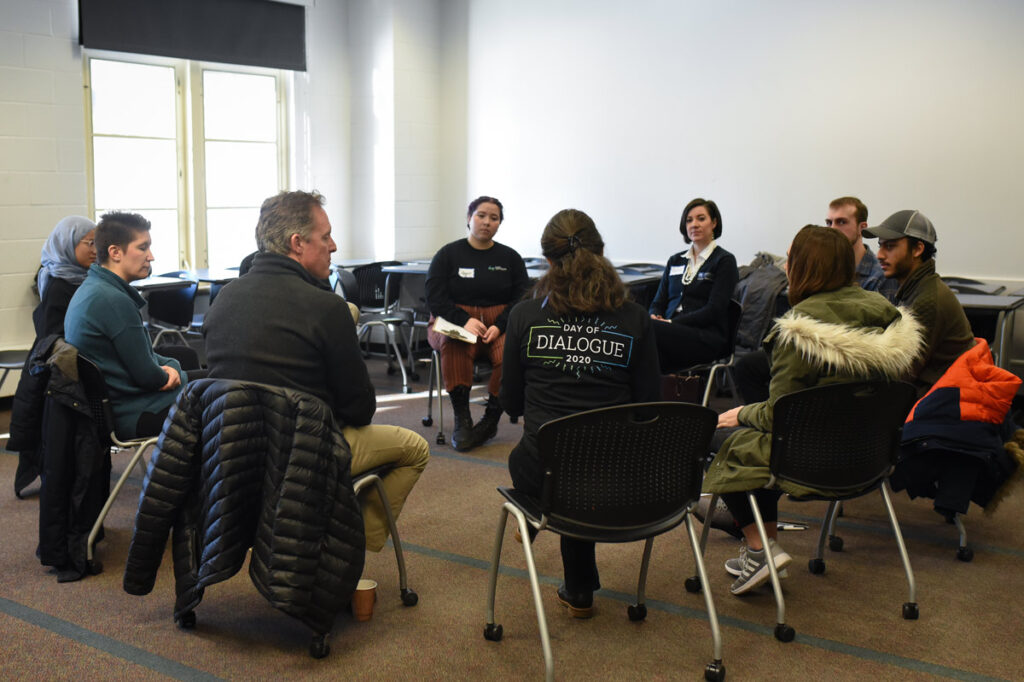
Intensive English Communication Program (IECP)
We hosted conversations with students and community members who were learning English.
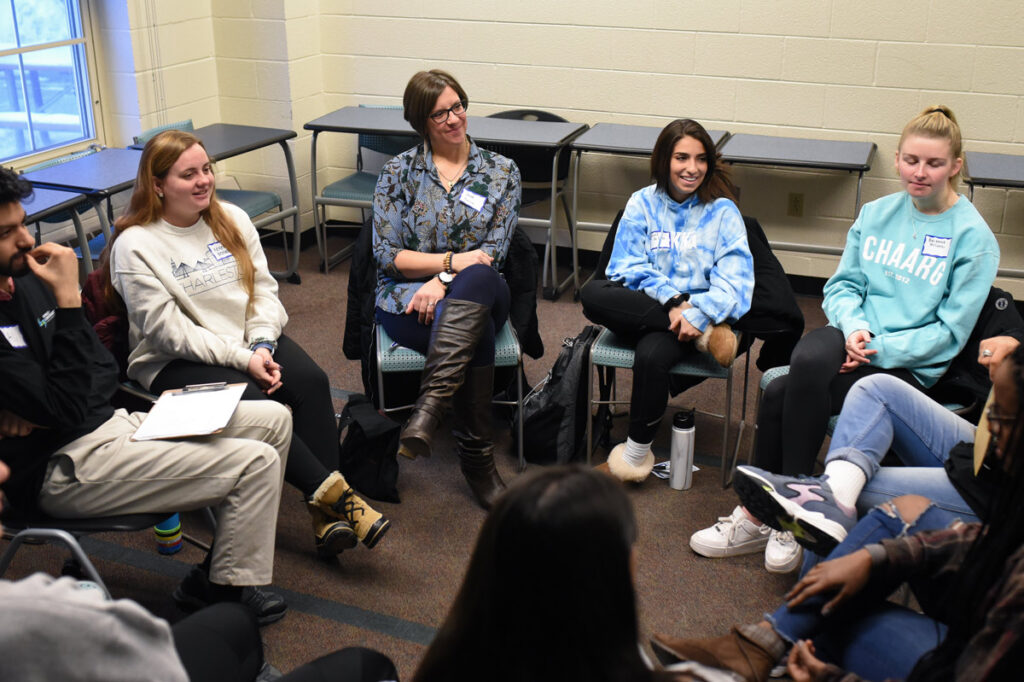
Commonwealth Dialogues
We have hosted online and/or in-person dialogues with every PSU campus in the Commonwealth.
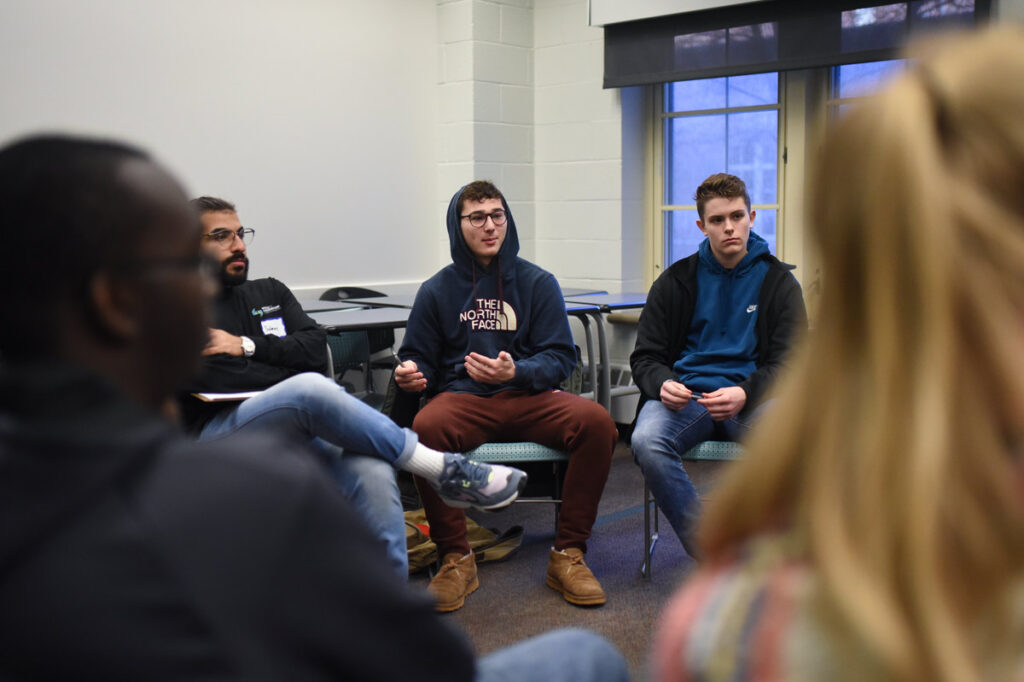
Penn State–Altoona Facilitator Training
We provided training to student facilitators on the Altoona campus in partnership with a professor to develop a WinC-style program there. We provided consultation throughout the implementation process on how to structure courses for a facilitation training program. And we continue to support troubleshooting as challenges arise.
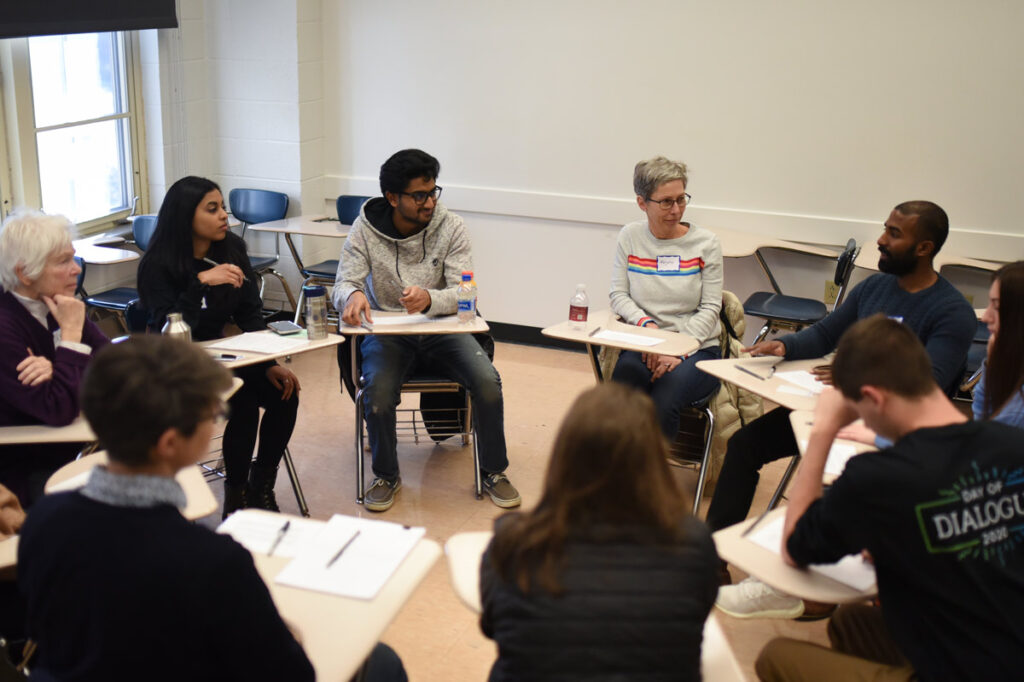
Drinking Dialogues
After a popular radio expose about Penn State as a “party school,” we hosted conversations to examine drinking behavior and culture among undergraduate students.
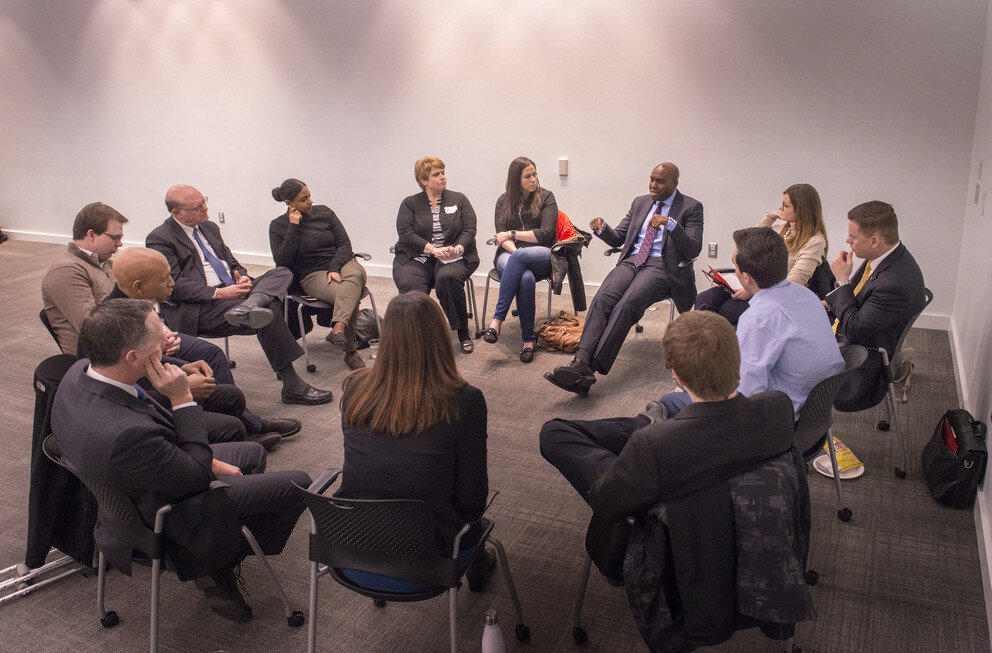
President’s Council Dialogues
In support of a university-wide “All In” campaign, the President, the President’s council and student leaders all participated in a series of dialogues together.
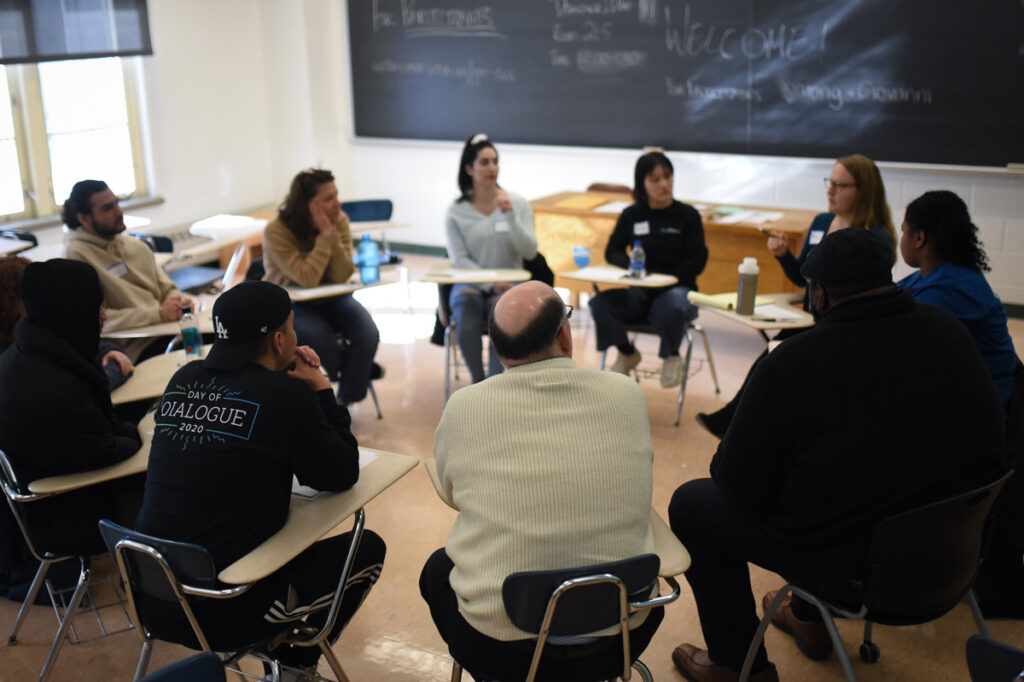
Penn State Professionals Dialogues
We hosted a semester-long initiative where staff, faculty and administrators joined our regular dialogues with Penn State students.
Community
We offer facilitators and training expertise to groups and institutions by request, mostly in Pennsylvania, but in other parts of the U.S. as well.

"Red-Blue" Dialogues
Launched in summer 2025, this initiative brings together community members from across the Centre region from all sides of the political spectrum to collaborate on the issues they care about most.
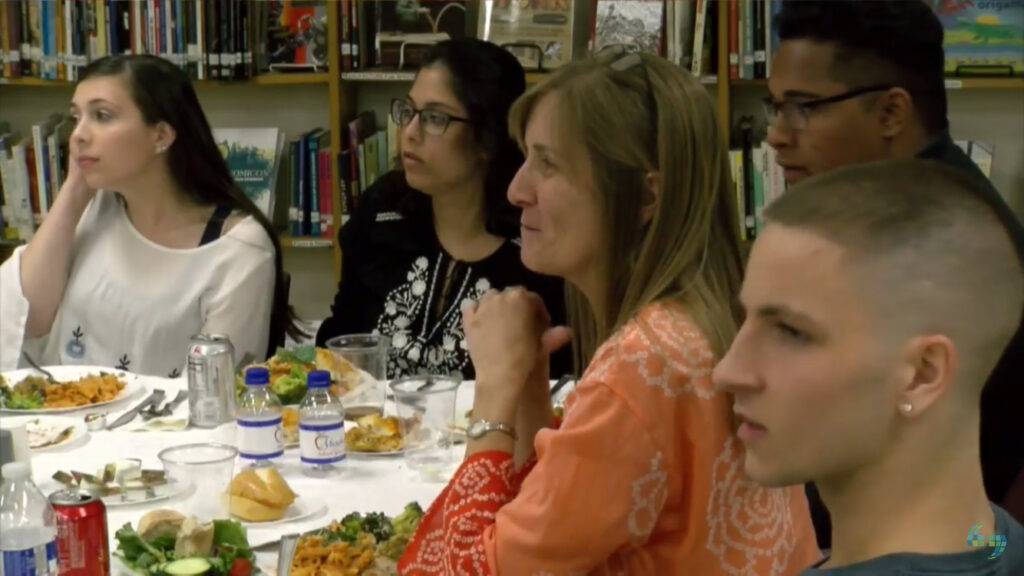
The Peace Table
Following a tragic school shooting, we joined forces with a high school in New Jersey for a facilitated dialogue with students about gun violence. Their candor and divergent views make this a model for problem-solving with opponents.
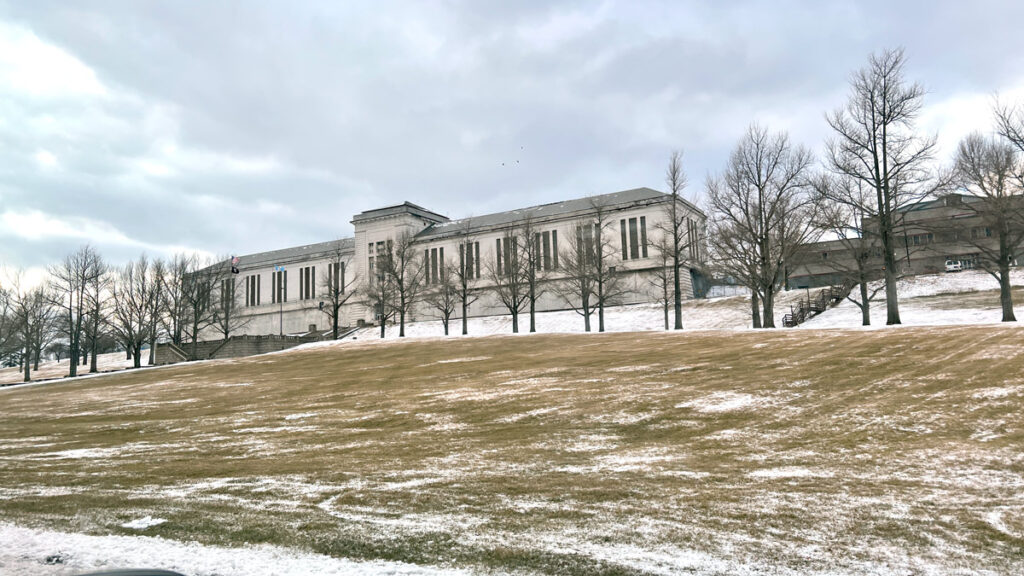
Getting Life Dialogues
Every semester for five years, Penn State undergraduates engaged in a series of facilitated dialogues with incarcerated men serving Life sentences inside a Pennsylvania State Prison.
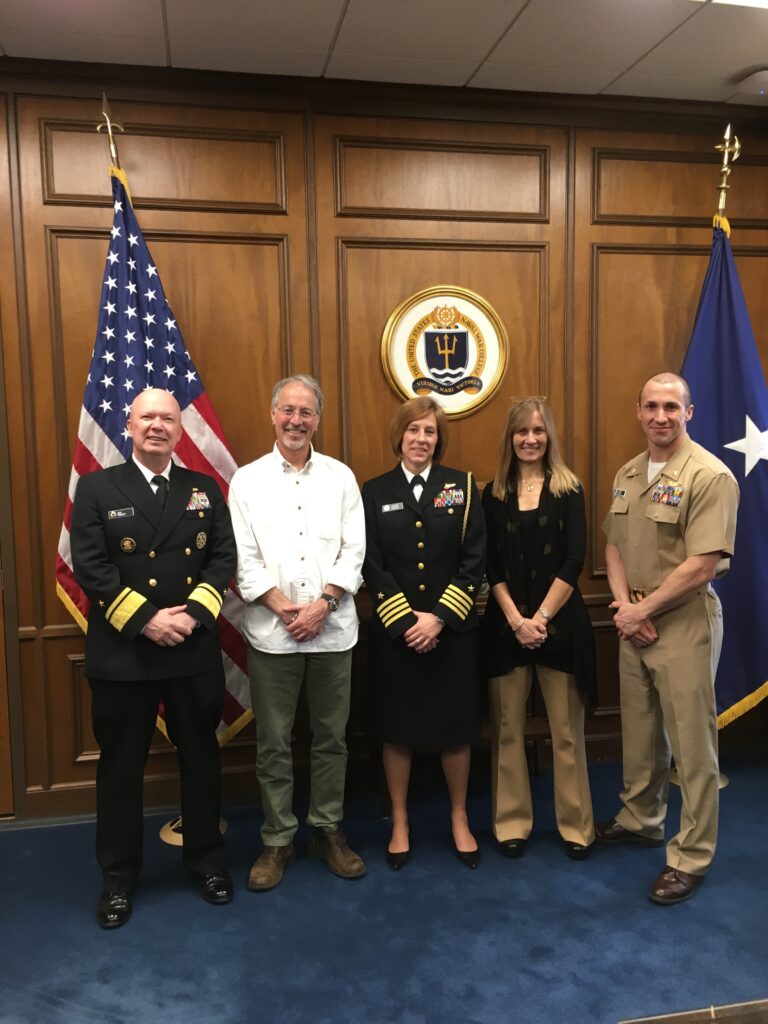
Navy War College Workshop
A series of facilitated dialogues focusing on gender differences in the workplace with high level staff who were concerned.
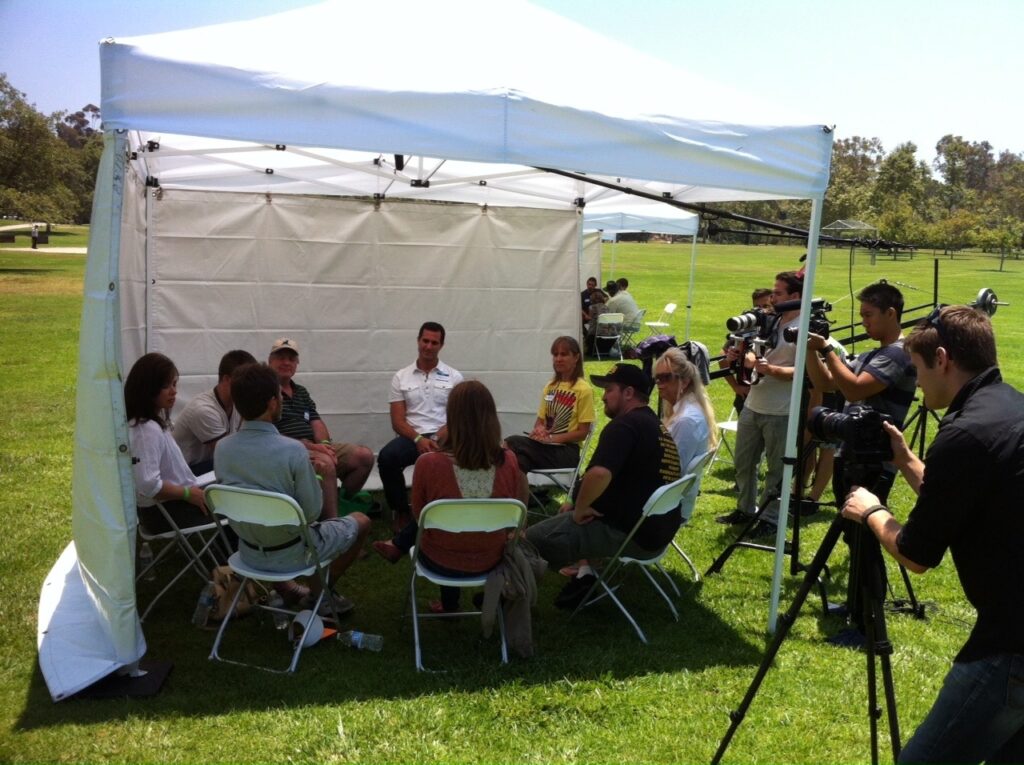
The Day We Came Together
Citizens representing opposing political groups participated in a day of facilitated dialogues in Southern California facilitated by alumni facilitators from World in Conversation.
Second Mile
In a multi-year collaboration with Second Mile, World in Conversation provided dialogues for ~150 “underprivileged” high school sophomores each year from towns across Pennsylvania.
State College High
In response to intercultural conflict among different groups of high school students, we facilitated dialogues, and provided panels of facilitators to share ideas and ways of navigating conflicts.

Police–Citizen Dialogue
Immediately after George Floyd’s death, a group of Nashville citizens and police gathered online for a facilitated dialogue.
State College Eco-Dialogues
In partnership with State College Borough, our facilitators led conversation with participants at a workshop on local ecology and development issues.
State College Delta Program
Our staff delivered a talk and then hosted a set of dialogues for students on site at this school.
St. Joseph's Academy
Our staff delivered a talk and then hosted a set of dialogues for high school students on site at this school.
California University of Pennsylvania
We worked with faculty and administrators both at their campus and ours to guide their establishment of a dialogue program at their school.
Farmers Dialogues
WinC facilitators led climate change discussion in a farming community in Central PA and discussed the different experiences between farmers.
East Stroudsburg University
Our first model program. Our staff spent 4 years working with ESU to establish and manage a cross campus dialogue program for 500 participants annually. This included training facilitators and coordinators, creating curriculum materials, designing a registration system, as well as working with faculty and administrators to establish the dialogues as a course requirement.
Around the Globe
Citizens around the world are hungry to engage in the possibilities of dialogue–and many have become long-standing partners.
NATO Extended Hand Initiative
In the process of World in Conversation testing dialogue as a tool for building empathy and humanization before deployment, cadets throughout the NATO alliance engaged in facilitated conversation with their peers at five different sites in Afghanistan.
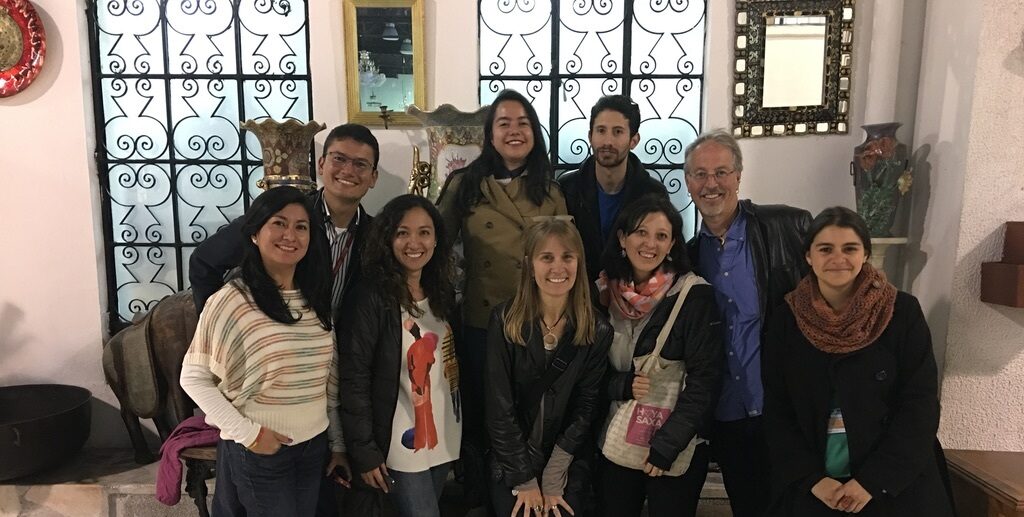
Colombia Se Escucha
Following the model of World in Conversation, Colombia Se Escucha is a non-profit partner based in Armenia established to train facilitators and build a post-conflict, community-based dialogue initiative in Colombia.
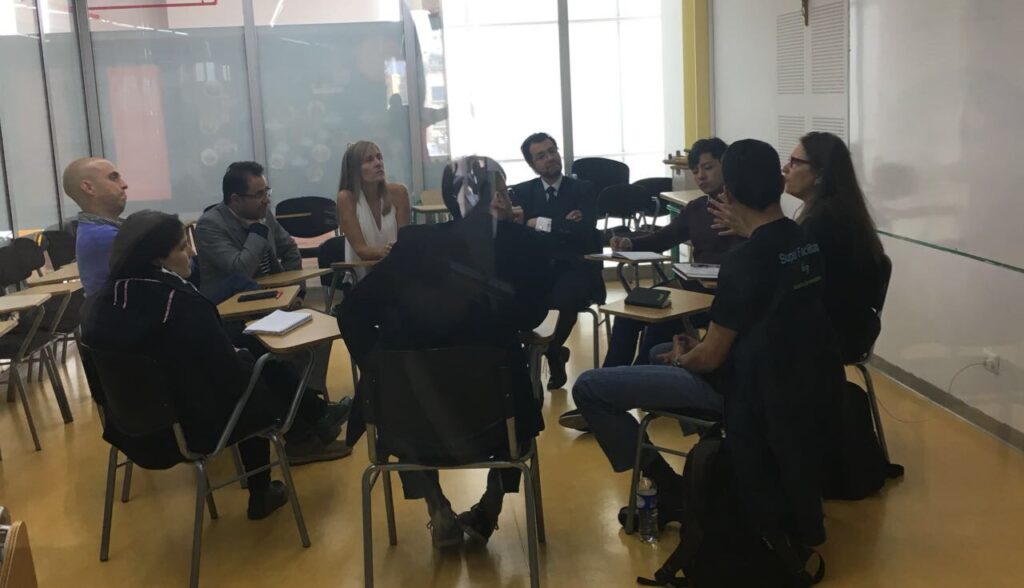
Pan American Development Foundation Dialogues
In partnership with Colombia Se Escucha, we offered a dialogue demonstration in Spanish and English to PADF as a proof-of-concept for their development work.
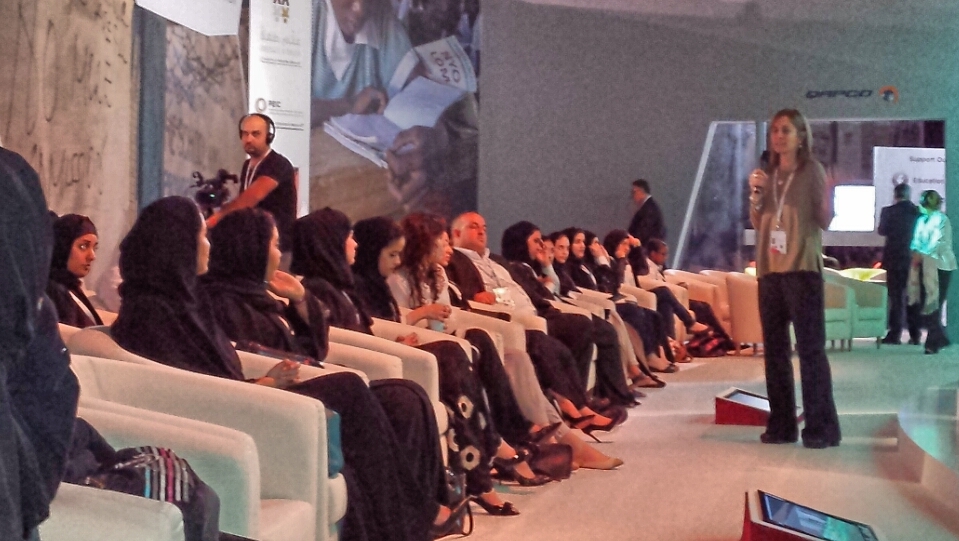
World Innovation Summit for Education (WISE) Doha, Qatar
An online dialogue between students in Qatar, Germany and the US as part of the WISE conference.
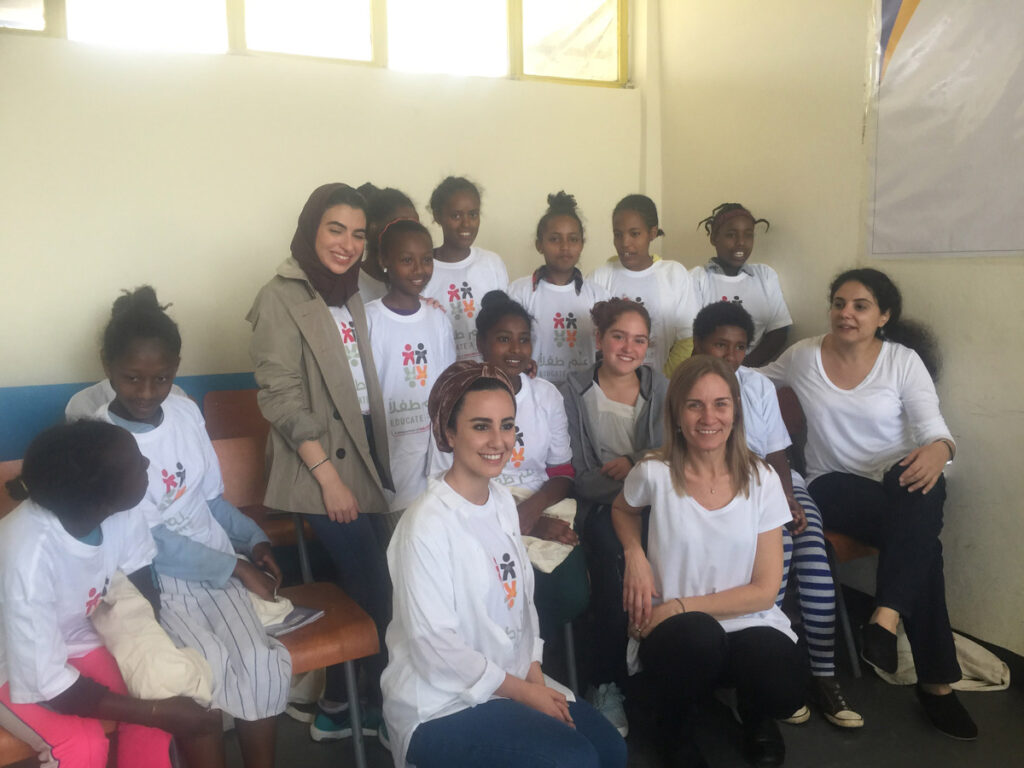
Education Above All – Addis Ababa, Ethiopia
After a year of online meetings and preparation, student leaders at universities in Addis Ababa, Ethiopia and Doha, Qatar met in Addis Ababa to examine the educational system there and to design a tutoring program for students.
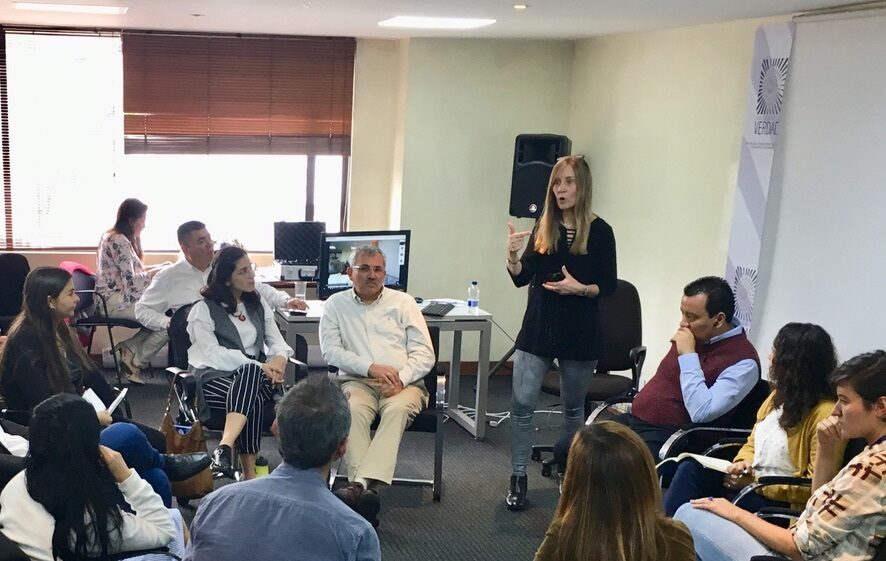
Colombia Truth Commission
In partnership with Colombia Se Escucha, we offered an immersive “proof-of-concept” training for the Ground Team of the Truth Commission to expand their use of dialogue as an effective tool for fact-finding.
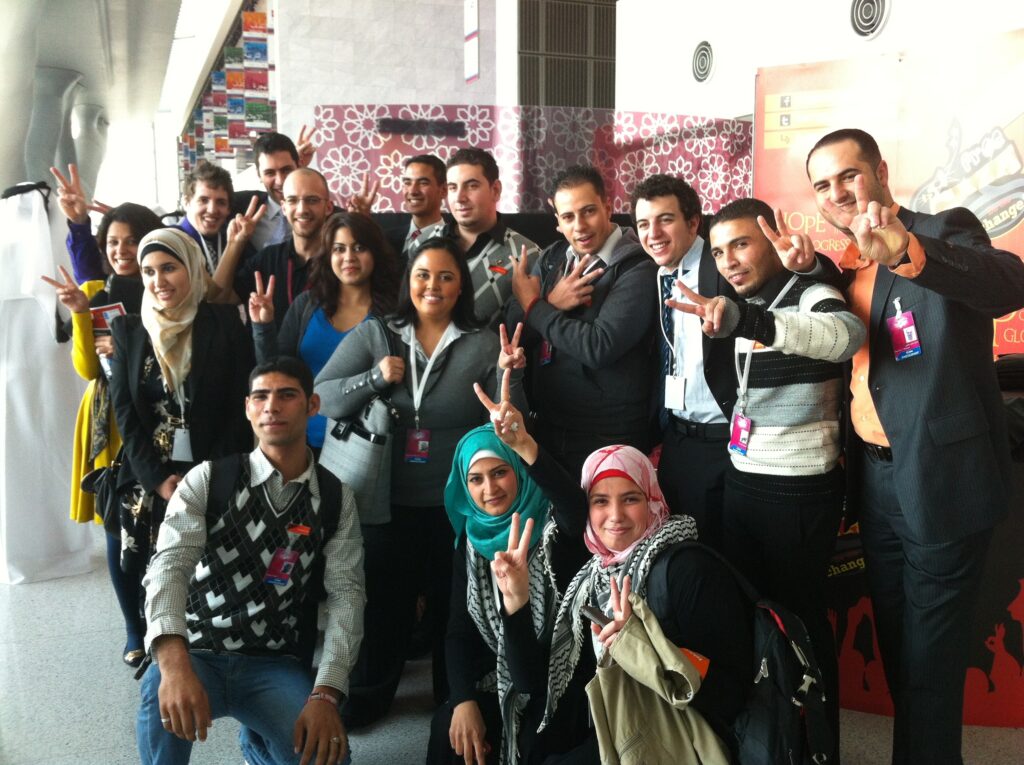
United Nations Alliance of Civilizations (UNAOC) Global Forum
The UNAOC describes itself as “a leading United Nations platform for intercultural dialogue.” At their 2011 Global Forum in Qatar with 2000 participants, our facilitator team hosted a full day of dialogues for invited youth leaders from around the world.

Women Across Borders - U.S. and Saudi Arabia
In this dialogue, we piloted an initiative between women who were young professionals in Saudi Arabia and students at Penn State.
Look where we are now...
